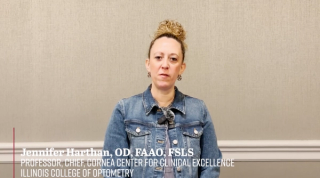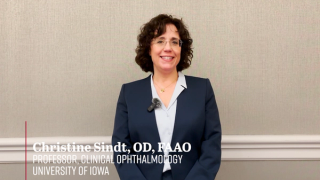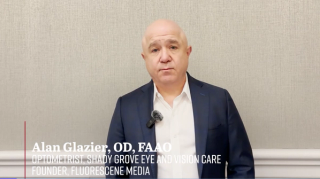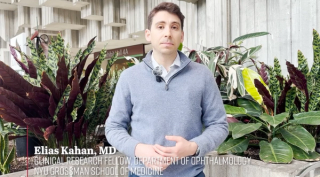
Cornea
Latest News
Latest Videos

CME Content
More News

The study evaluated 14 patients that were treated with cultivated autologous limbal epithelial cells (CALEC) and followed them for 18 months.
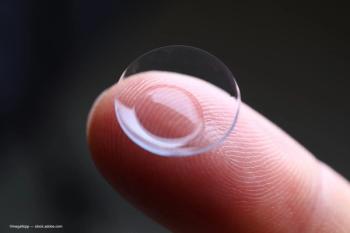
The system aids in the orthokeratology lens design process by syncing directly with topographers to create precise lens designs for the treatment of myopia in the matter of seconds.

Batoclimab is an anti-FcRn treatment being developed for a range of autoimmune diseases and active thyroid eye disease (TED).

The treatment was approved by China’s National Medical Products Administration (NMPA) and is China's first, and the world’s second, approved IGF-1R antibody drug.

Maria Vittoria Cicinelli, MD, Denise Loya-Garcia, MD, PhD, and Vishal Raval, MD, were announced as the recipients and will receive a $3,000 honorarium.

Urcosmid is a lipid conjugated chemerin peptide agonist of the ChemR23 G-protein coupled receptor, typically found on immune cells of the eye responsible for the inflammatory response.

Cortrophin Gel is a prescription medicine that is injected subcutaneously or intramuscularly indicated for severe acute and chronic allergic and inflammatory conditions affecting the eye.

Meibomian glands are critical to the ocular health in that they secrete lipid-rich meibum, which protects the ocular surface by preventing tear film evaporation.

Amniotic membrane tissue offers a number of advantages to patients.

The state-of-the-art facility more than doubles the institute’s footprint, enhancing patient care, research, and education.

A PDUFA date has been set for October 20, 2025. If approved, Epoxia will be the first epi-on corneal crosslinking on the market.
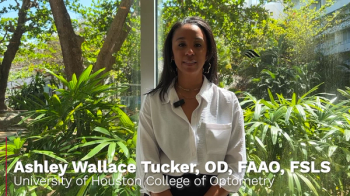
At the Envision Summit 2025 in San Juan, Puerto Rico, Ashley Wallace Tucker, OD, FAAO, FSLS, gave insight into advancements in keratoconus management and the importance of early detection as well as tips and advice on fitting scleral contact lens

Routine evaluation of meibomian glands, starting in childhood, is crucial for identifying and managing this progressive disease before it leads to long-term ocular surface issues.

The study’s main outcome measures were the changes in those 2 parameters following treatment with teprotumumab.

The rationale for the study was anecdotal reports of the effects of breast milk used by mothers to treat blocked tear ducts, rashes, and a chemical corneal burn in babies.

The meetings support the company’s submission for its bioengineered corneal implants to eliminate corneal blindness.

The additions to the ANTERION Cornea App will be commercially available in February 2025

Lana Rifkin, MD, a uveitis specialist at Ophthalmic Consultants of Boston, shared insights into her work and her role as committee chair of the uveitis section for the upcoming EnVision Summit, which will be held from February 14 to 17, 2025, at the Caribe Hilton San Juan in Puerto Rico.

This year was brimming with advancements in eye care.

According to Robert Latkany, MD, understanding the causes and recognizing these diagnostic features are essential for effective treatment.

Trending topics and milestone stories from our year in ophthalmology.

Epioxa is a next-generation corneal cross-linking iLink therapy for the treatment of keratoconus.

In an interview with Ophthalmology Times, clinical trial investigator Zaina Al-Mohtaseb MD, noted the CLARA Phase 1/2 trial demonstrated the safety, efficacy, and simplicity of corneal endothelial cell injection therapy with a rho kinase inhibitor, offering a less invasive alternative to traditional corneal transplantation for treating corneal edema.

Research data published earlier this year could help clinicians gain a better understanding of what to look for in a specular microscope, and how to interpret inter- and intradevice repeatability results in a way that benefits their existing practice framework.

VisiRose, a company formed in collaboration with Provectus Biopharmaceuticals and the University of Miami Miller School of Medicine’s Bascom Palmer Eye Institute, is advancing Rose Bengal Photodynamic Antimicrobial Therapy (RB PDAT), a non-invasive treatment for infectious keratitis, leveraging light-based technology and addressing antimicrobial resistance to improve outcomes for patients with severe eye infections globally.







